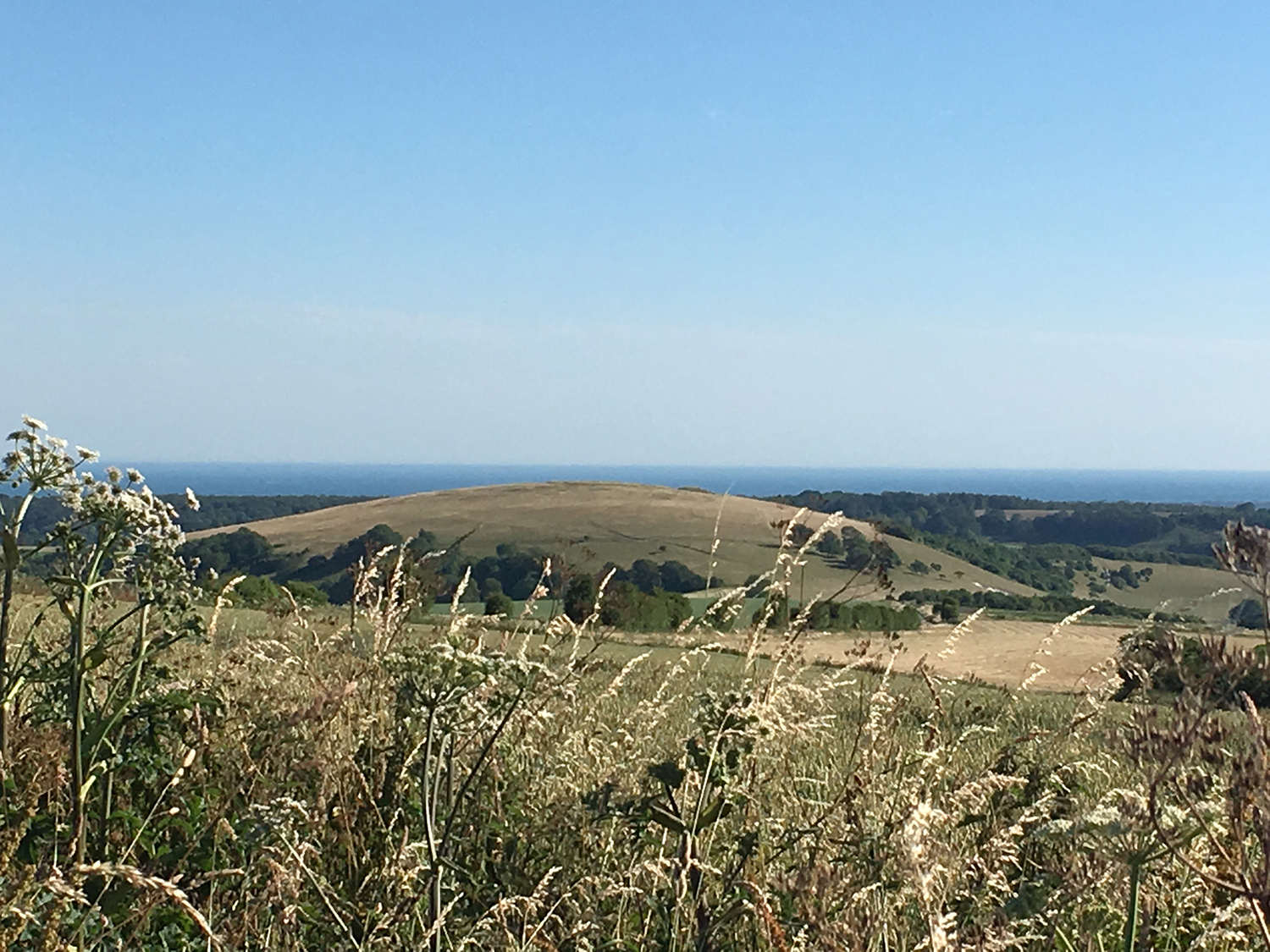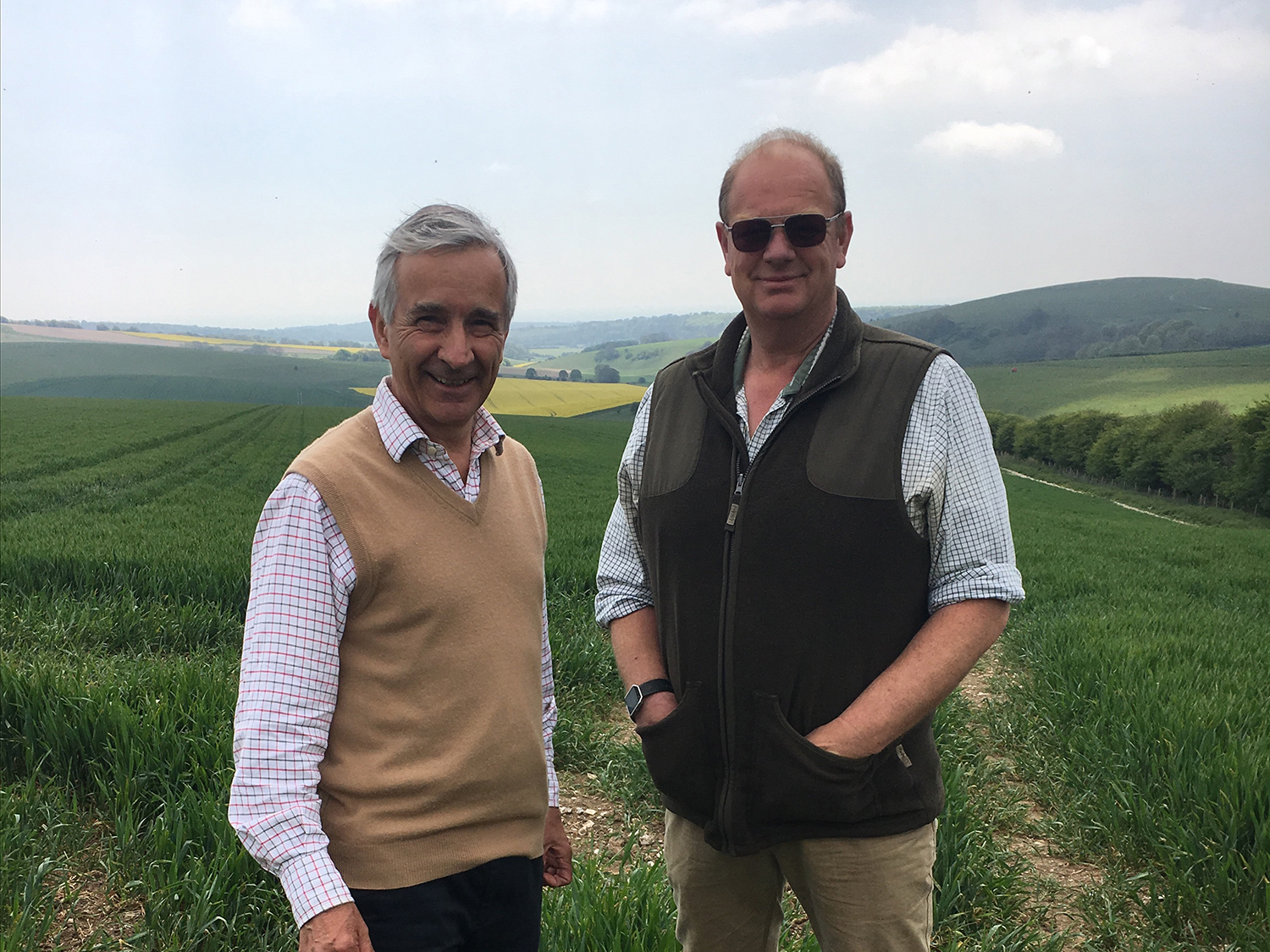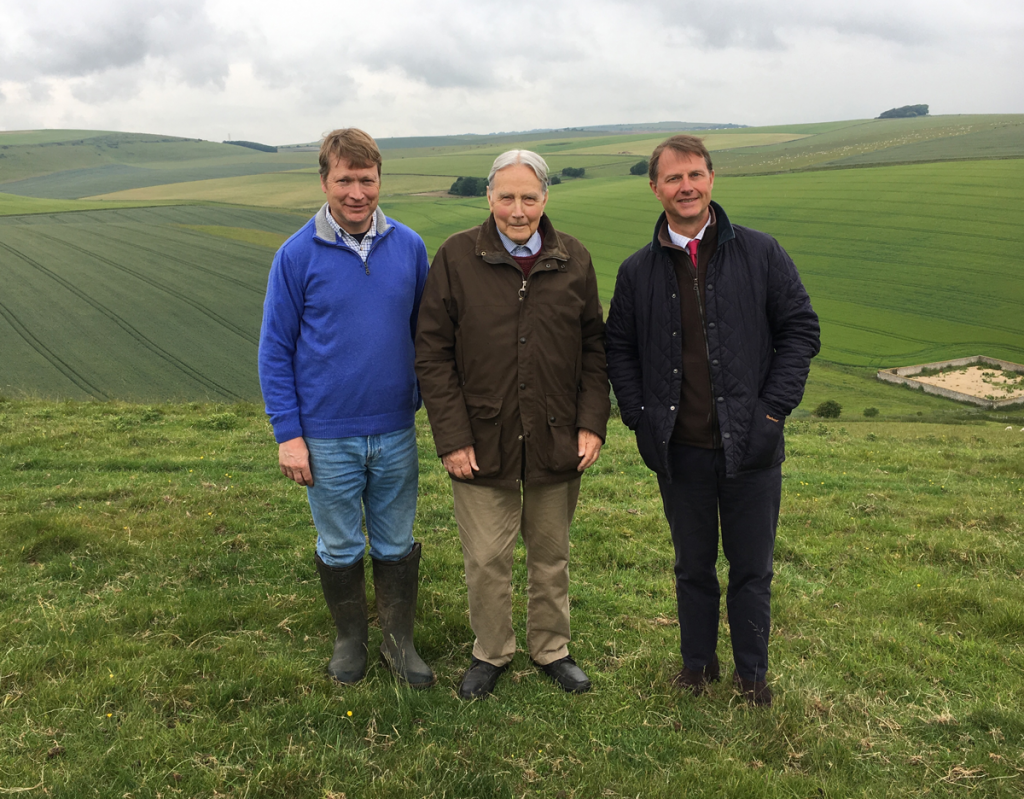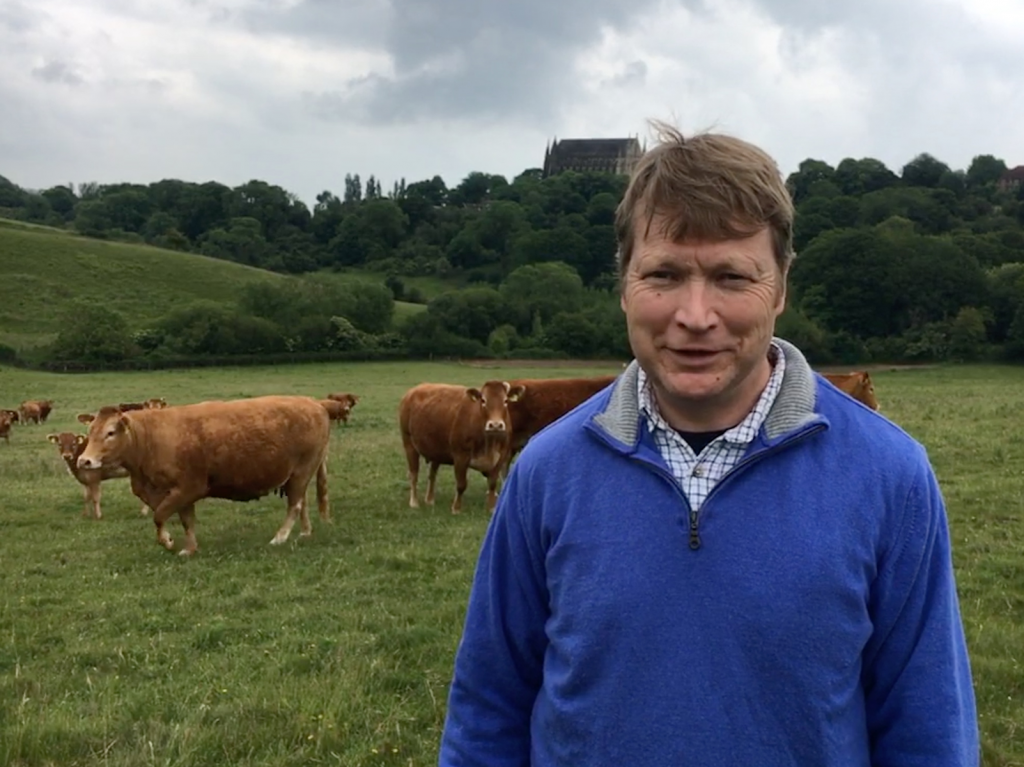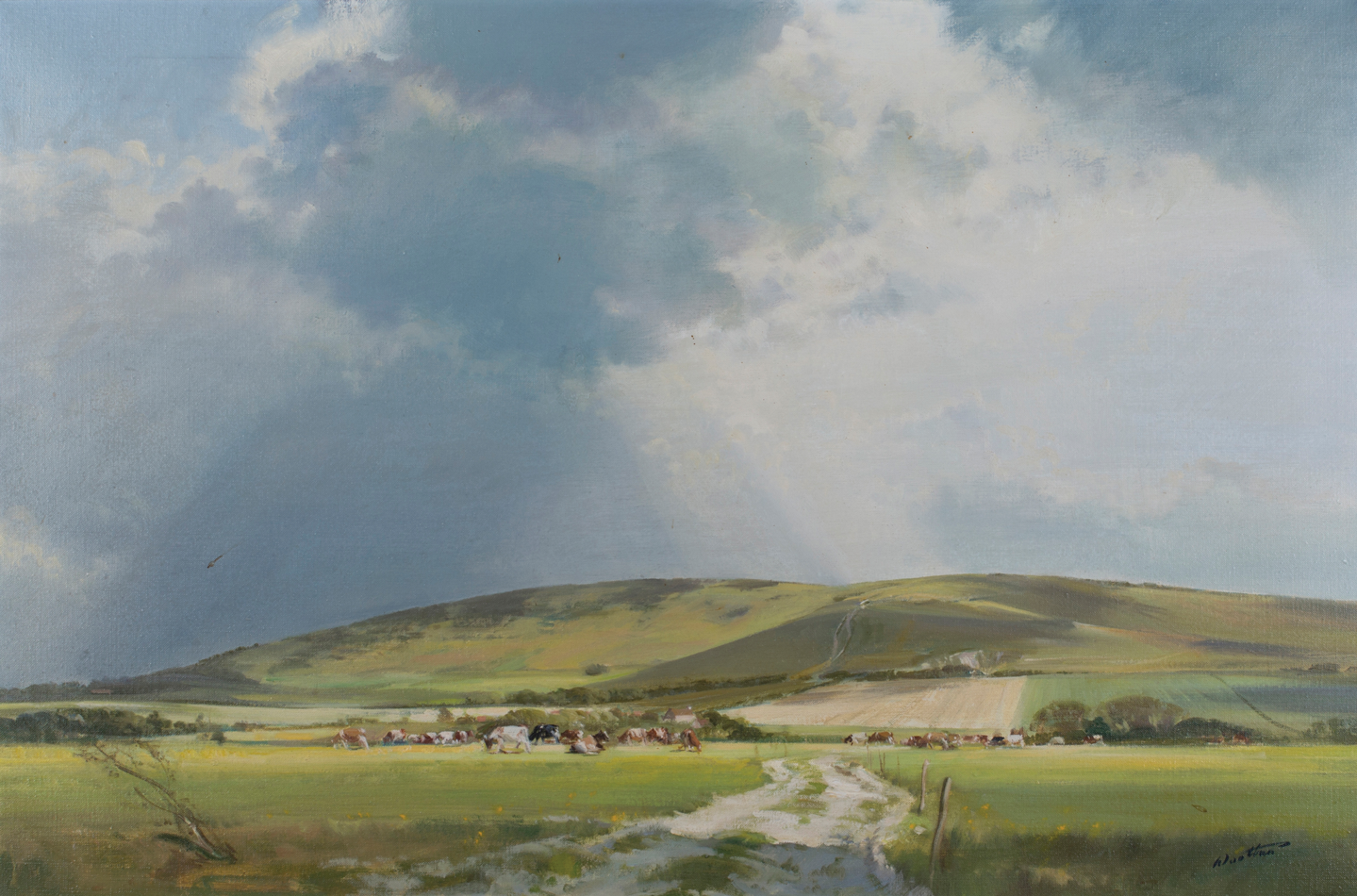
The South Downs have for centuries been shaped by farming. The ancient, managed chalk grasslands are still maintained on some of the steep downland slopes. The rich biodiversity of birds, fauna and insects predate on those that eat the crops. In the valleys and open fields mixed farming ensures that the fertility of the soil is improved and maintained by the under planting of cereal crops with rich clovers and grass grazed by sheep and cattle in seven year crop rotations to limit disease. Some of the most balanced and sustainable farming practice in the country is to be found in the leas of the South Downs.
The oil painting titled ‘A Passing Storm, Windover Hill, Sussex’ by the Sussex artist Frank Wootton. OBE (1911-1998) depicts a rural idyll with grazing cattle beneath the majesty of the Sussex Downs. It sold at Toovey’s for £2600. You sense the heat in the tone and palette of the scene. The storm casts its shadow, moving quickly across the landscape as the rain falls. It is this quality of landscape which speaks into the very identity of our nation. What the Shipley poet Hilaire Belloc described as ‘The great hills of the South Country, They stand along the sea’.
Frank Wootton studied at The Eastbourne College of Art under Eric Ravilious and Arthur Reeves-Fowkes. Whilst his landscapes and equestrian scenes are celebrated Wootton is perhaps most famous for his aeronautical paintings.
In the late 19th and 20th centuries many of Britain’s leading artists were inspired to leave London, our towns and cities for the country. For some it was to escape the effects of the industrial revolution and for others the wars
And here’s the thing, that sense of the rural idyll remains alive in popular culture and the public’s imagination. In contrast we have become more and more removed from the reality of country life even though the debate around farming in this country is entering into our national conversation.
The overwhelming majority of the farmers here in Sussex work constantly to achieve a balance between maintaining the fertility of the land, producing food in a sustainable way for the nation with close attention to the preservation of nature.
In a mixed agricultural response to the challenges of climate change it is vital that we seek to restore our soils and feed the nation through mixed agriculture. Local food supply chains, balanced mixed farming, and working with nature must surely have a dramatically reduced carbon footprint over the alternative of importing our food on hugely polluting ships and planes.
Our farmer’s continue to steward the landscapes which have inspired artists and musicians over the centuries and never more so than in Sussex in the 20th century. In our hearts and minds the countryside with its generous communities connected with the seasons and the abundance of the land have provided hope against the back drop and grind of urbanisation.
Walking with nature and in conversation with those we love is a great blessing. Our countryside, maintained by our farmers, is the perfect place for a day’s holiday-after all Sussex has some of the most beautiful landscapes in the world. And we must do our best to support our Sussex farmers as we shop.
